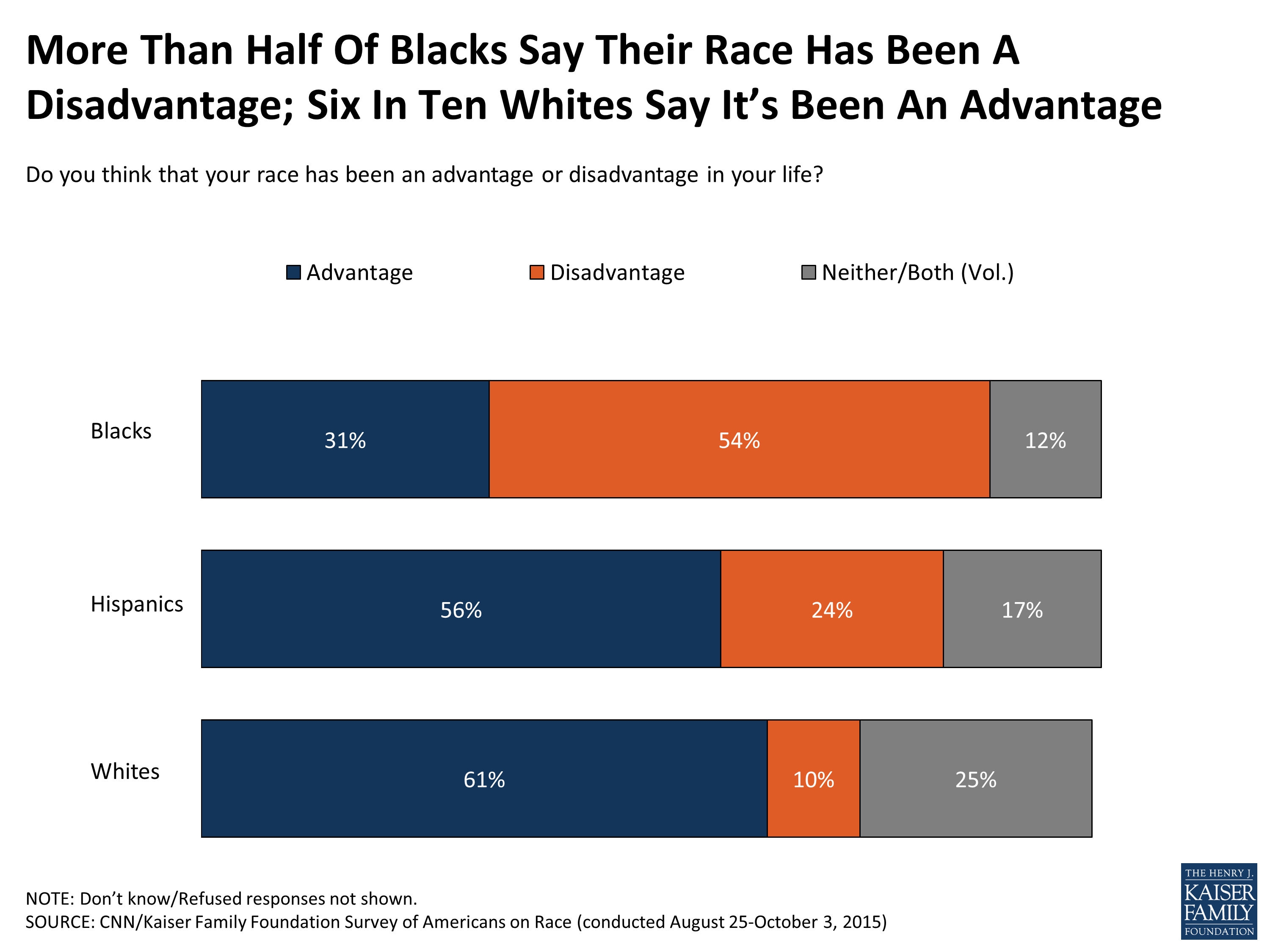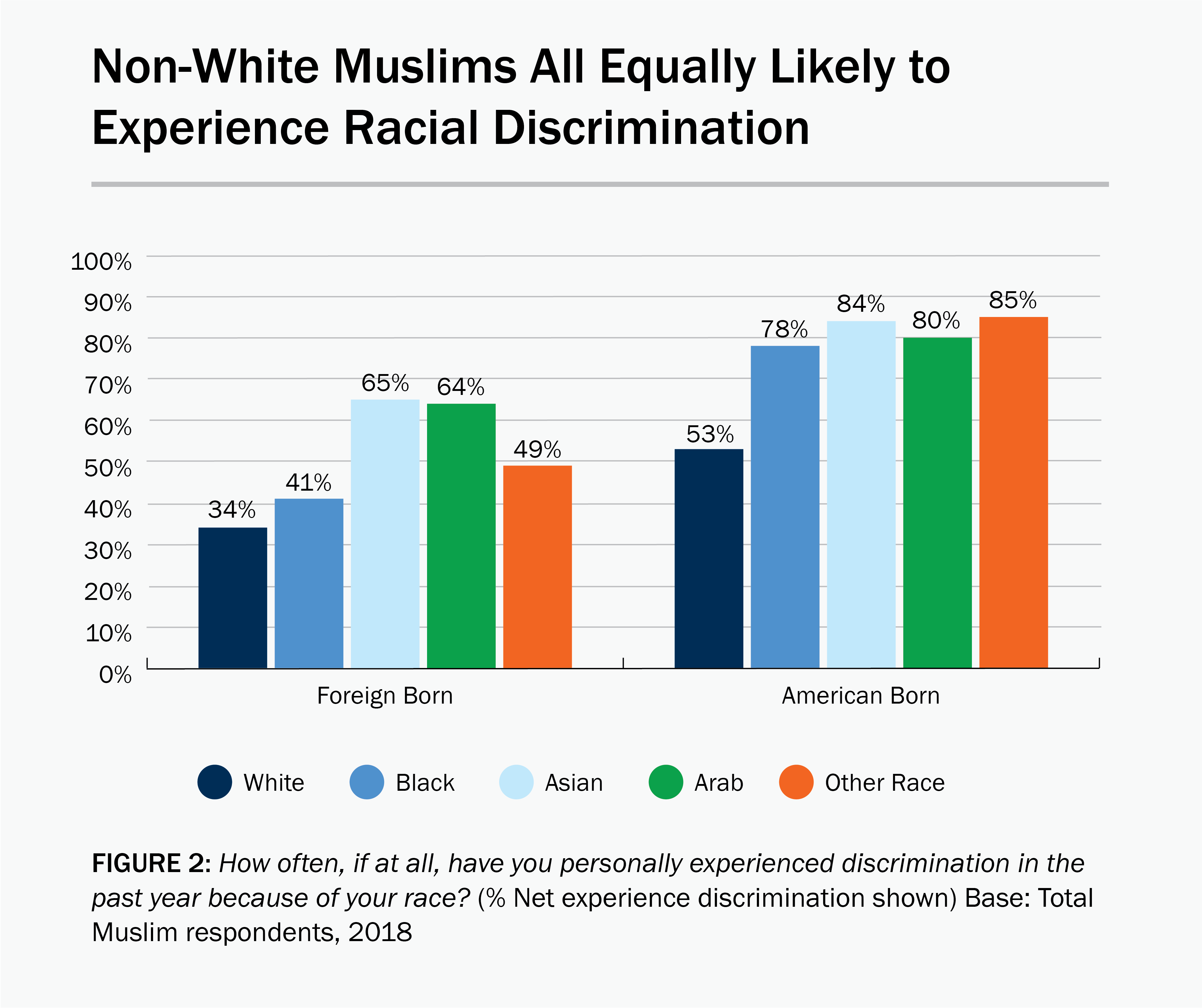Experiencing racism can affect cognitive abilities of black women
Table of Contents
Table of Contents
As much as we wish to believe that racism has no place in the 21st century, statistics reveal that racial discrimination is still prevalent in our society. Shockingly, people of color experience bias in nearly every aspect of life, including job interviews, housing, healthcare, and even daily interactions with law enforcement officials.
Understanding the Pain Points of Statistics of Racial Discrimination
The aftermath of racial discrimination often translates to a lack of trust in institutions, anxiety, and negative self-esteem. Statistics from various surveys and studies show that people of color are more likely to report facing discrimination than white people. Nevertheless, bias continues to be a challenging issue to tackle.
The Target of Statistics of Racial Discrimination
To address the challenges of racial discrimination, we must first understand the nature of the issue and how it affects the victims. We also need concrete data to prove that the bias exists and to gain a deeper comprehension of its effect on society.
Key Takeaways from the Statistics of Racial Discrimination
The statistics paint a grim picture of the state of racial discrimination in the US. According to a survey by Harvard T.H. Chan School of Public Health, 25% of Black Americans reported discrimination at work, and 56% feel they receive unfair treatment by the police. Muslims also report discrimination in their daily lives, with hijab-wearing women receiving the highest number of complaints. Additionally, racism’s impact on cognitive abilities in Black women is a growing concern in the medical industry.
Black American’s Experience of Racial Discrimination
Personally, I have experienced discrimination on several occasions when I lived in the US. One instance that remains vivid in my mind occurred when I was pulled over by the police for no apparent reason other than being a Black driver in a predominantly white neighborhood. After examining my driver’s license and running a quick background check, the police officer let me go. Although I left the scene unharmed, the experience left me with a feeling of anxiety that lasted several days.
Nativity’s Impact on the American Muslim Experience
Instances of Islamophobia have been on the rise in the US over the past decade, with Muslims being a target for hate crimes. As a Muslim myself, I have had my own fair share of being in unfriendly situations due to my background. For instance, I remember how someone once made a derogatory comment about my Hijab without any provocation. The discrimination against Muslims is particularly rampant for those born outside the US or the first generation of immigrants in the country.
Criminal Justice Discrimination Against Black Americans
Black Americans are more likely to serve longer sentences for the same or less severe crimes committed by white Americans. A study by Pew Research revealed that while Black Americans account for just 12% of drug users, they are involved in 33% of drug-related arrests and more than half of drug-related prison sentences. This discrimination perpetuates a vicious cycle of poverty and creates setbacks in the effort towards racial equality.
Discrimination’s Worsening Impact on Cognitive Abilities of Black Women
A recent study by researchers at Harvard and Tulane universities found that Black women who experienced frequent racial discrimination had poor cognitive abilities compared between the ages of 49 and 55. Their brains aged the equivalent of a period between two and six years compared to their white counterparts. This issue is dangerous as it affects the employability and general health of Black women, making it even more challenging to bridge the racial gap in society.
Racism’s Impact on Healthcare Disparities
Racism contributes to significant healthcare disparities in the United States, determined by socio-economic status, race, and ethnicity. People of color, particularly Black and Hispanic populations, suffer the most severe impacts of racism in healthcare. Studies show that these groups are likely to have higher hospitalization rates, including substance abuse and mental health disorders. By attending to these inequalities, we can promote better health outcomes and improve trust in healthcare providers for people of color.
Question and Answer about Statistics of Racial Discrimination
Question 1: What is the root cause of racial discrimination in the United States?
Answer: Racism is fundamentally based on biases and unfounded beliefs and stereotypes. While recent conversations have highlighted systemic racism within American institutions, including the police, the root cause of racism is based on historical and cultural factors perpetuated over time.
Question 2: What impact does discrimination have on mental health in people of color?
Answer: Discrimination and racism have severe consequences on the mental health and overall well-being of people of color. They often lead to stress, high levels of cortisol, and depression. The psychological effects of discrimination can result in symptoms similar to people dealing with post-traumatic stress disorder.
Question 3: Why are people of color less likely to trust institutions, including the police?
Answer: The lack of trust comes from actual experiences of discrimination and systemic biases that favor the white population. People of color are more likely to experience discrimination in healthcare, education, housing, and employment, among other areas. Institutionalized racism has created distrust in institutions, including the police, that are supposed to protect individual rights and freedoms.
Question 4: What steps need to be taken to address the issue of racial discrimination?
Answer: Creating awareness of the issue with tangible data is the first step towards change. Education, training, and accountability for those who perpetrate discrimination are also necessary. Individuals with more privileges must use their voice to combat racism by speaking up against discriminatory actions and policies and supporting minority groups.
Conclusion of Statistics of Racial Discrimination
The statistics reveal the persisting reality of racial discrimination and its impact in our society. Addressing the issue will require a combined effort from individuals, communities, and institutions. As we all work to end racial discrimination, we must hold ourselves accountable for our actions and ensure that everyone, regardless of background and ethnicity, has an equal opportunity to lead a fulfilling life.
Gallery
Experiencing Racism Can Affect Cognitive Abilities Of Black Women

Photo Credit by: bing.com / racial discrimination racism bias race survey privilege affect health americans family abilities experiencing cognitive percent section kff because kaiser foundation
Survey Of Americans On Race, Section 1: Racial Discrimination, Bias

Photo Credit by: bing.com / discrimination racial race bias privilege survey section americans kff been figure
Statistical Sources - Systemic Racism - Guides At Milner Library
Photo Credit by: bing.com / racism systemic america blm inequality graphs
Born In The USA: How Nativity Affects The American Muslim Experience | ISPU

Photo Credit by: bing.com / usa discrimination graph born racial ispu nativity american experience showing
Black Americans On Discrimination At Work, By Police | News | Harvard T

Photo Credit by: bing.com / discrimination americans racial harvard police workplace work america against chart discriminated poll health report half experienced finds least jobs say






